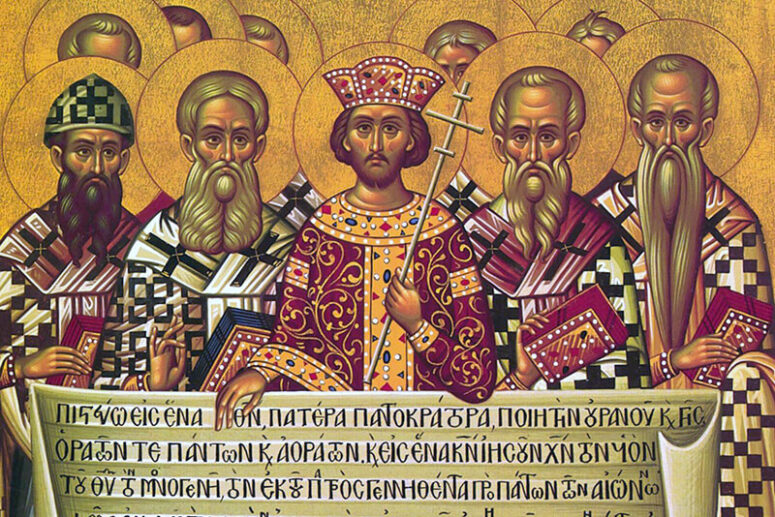
A recognized tenet of the faith is a part of the church doctrine, unlike a tenet that has been condemned as heresy. In this article, however, we cover some of the less straightforward examples, where drawing the line between the Orthodox doctrine and heresy is difficult:
— “Permissible” heresy in the writings of the Holy Fathers;
— Orthodox views that appear as heresy;
— Private opinions and views on theological matters that do not appear congruent with the Orthodox teachings.
Confused? Keep reading to make sense of the Orthodox doctrine and not be daunted by difficult questions.
Pre-Nicaean subordinationalism in writings of the holy fathers: a “permissible” heresy
Subordinationism is a heresy claiming that some persons of the Holy Trinity are subordinate to others. Proponents of this teaching claim that the Holy Spirit is the lesser person of the Trinity, and is subordinate to the Son, and the Son is subordinate to the Father. In its extreme versions, subordinationalism becomes Arianism, a heresy that affirms the creation of the Divine Logos.
Subordinationism was common among many holy Fathers and theologians of the early Church from the first to the fourth centuries, including the Holy Martyr Justin the Philosopher, Saints Martyrs Dionysius the Great and Irenaeus of Lyon, Saints Athenagoras of Athens, Clement of Alexandria, Origen and Tertullian. Unlike the other Trinitarian heresies, such as Modalism or Adoptionism, Subordinationalism was taught by the Holy Fathers. Among the participants of the First Ecumenical Council (325) were representatives of three groups of theologians: Arians, Ssubordinationists (followers of Origen), and the group led by St. Alexander of Alexandria, who affirmed the consubstantionality of the Father and Son.
The First Ecumenical Council condemned Arianism as an extreme form of subordinationalism. Its moderate form was not condemned, but its influence on church doctrine quickly diminished. Subordinationalist views became untenable when the true Orthodox teaching strengthened.
Subordinationism was heresy. But the Holy Fathers who professed it were not heretics, because, in their lifetimes the doctrinal teaching on this question was only emerging. Furthermore, none of the fathers who preached it lived to the fourth century or heard about the Council of Nicaea.
Heresy is translated from Greek as “choice”. Heretics make the conscious choice to oppose the teaching of the Church. The Holy Fathers could not be accused of heresy because they were the first to raise the question about the relationships among the persons of the trinity. They take the credit for developing the language and terminology of the Christian teaching on the Trinity.
Sergius Bulgakov’s doctrine of Sophiology: Heresy or not?
Archpriest Sergius Bulgakov elaborated the doctrine of sophiology, a distinct religious-philosophical philosophy on the Divine Wisdom. The Holy Scripture talks about the Divine Wisdom, and even personifies it, it is not the only source of Bulgakov’s philosophical teaching.
Many ideas of sophiology derive from Plato and were further elaborated in Gnosticis and reformation mysticism (e.g. Jakob Böhme). Father Sergius Bulgakov, together with the other Russian religious philosophers (Solovyev, Bergyaev and Florensky) adapted these ideas to fit into the Orthodox doctrine.
To Bulgakov and other religious philosophers, Sophia was both God’s plan for the world and His creative power. It was a being of His creation, as viewed through the prism of His Divine plan. It is personalized and participates proactively in
the fortunes of the world. Adherents of sophiology often referred to visionary experiences, including their personal ones. In their accounts, the Divine Wisdom appeared to them either as a Great Feminine Being, Christ, or the Holy Spirit Himself.
The propagation of this teaching by Fr. Sergei Bulgakov raised strong opposition among the clergy. He was accused of distorting the Church’s teaching on the trinity by adding a fourth person to it. Some condemned him as a Gnostic and a heretic. At first glance, these accusations may seem fair, but the question is not as simple as it appears.
The Russian Orthodox Church of the Moscow Patriarchate condemned his teaching twice in 1935. The Church warned the faithful that Bulgakov’s doctrine distorts the truths of the faith, and therefore should be avoided. However, it stopped short of calling it heresy. On the other hand, the Russian Orthodox Church Outside of Russia, which was then out of communion with the Russian Orthodox Church of the Moscow Patriarchate MP, called Fr. Sergius’ teachings a heresy.
Father Sergius himself did not renounce his views. Sergius did not renounce his views. Yet he did not persist in propagating them after he was condemned. After his first condemnation, he filed a note with the bishop of his diocese. The note’s closing sentence presented its main argument as follows: “How can I renounce my errors if when they have not been explained to me?” Subsequently, Orthodox theologians produced several works condemning Bulgakov’s philosophy.
A theological commission set up by the Russian Church in 1936, could not find sufficient grounds to condemn Sergius Bulgakov as a heretic despite several years of investigation.
So how did the story end? Bulgakov’s teachings on sophiology remained misunderstood. Its form, complexity, and obtuse philosophical language and terminology were untypical of Orthodox theology and made his works confusing to the reader.
It takes education and an amount of ascetic and mystical experience to appreciate the merits of Bulgakov’s teachings.
Overall, his doctrine did not merit condemnation, and it was wrong to declare it heresy. It does not contradict the Orthodox doctrine. Conversely, one does not have to adhere to it or reject it to be Orthodox. It adds to the richness and versatility of the Orthodox school of thought. For a more in-depth explanation of the boundaries of the acceptable in Cristian thought, follow the link below.
St Hilary of Poitiers and the difficulties of understanding patristic writings
Consider the following passage from the treatise “On the Trinity” by St. Hilary of Poitiers:
“So the Man Jesus Christ, Only-begotten God, as flesh and as Word at the same time Son of Man and Son of God, without ceasing to be Himself, that is, God, took true humanity after the likeness of our humanity. But when, in this humanity, He was struck with blows, or smitten with wounds, or bound with ropes, or lifted on high, He felt the force of suffering, but without its pain. Thus a dart passing through water, or piercing a flame, or wounding the air, inflicts all that it is its nature to do: it passes through, it pierces, it wounds, but all this is without effect on the thing it strikes; since it is against the order of nature to make a hole in water, or pierce flame, or wound the air, though it is the nature of a dart to make holes, to pierce and to wound. So our Lord Jesus Christ suffered blows, hanging, crucifixion and death: but the suffering which attacked the body of the Lord, without ceasing to be suffering, had not the natural effect of suffering. It exercised its function of punishment with all its violence; but the body of Christ by its virtue suffered the violence of the punishment, without its consciousness. True, the body of the Lord would have been capable of feeling pain like our natures, if our bodies possessed the power of treading on the waters and walking over the waves without weighing them down by our tread or forcing them apart by the pressure of our steps if we could pass through solid substances, and the barred doors were no obstacle to us. But, as only the body of our Lord could be borne up by the power of His soul in the waters, could walk upon the waves, and pass through walls, how can we judge of the flesh conceived of the Holy Ghost on the analogy of a human body? That flesh, that is, that Bread, is from Heaven; that humanity is from God. He had a body to suffer, and He suffered: but He had not a nature which could feel pain. For His body possessed a unique nature of its own; it was transformed into heavenly glory on the Mount, it put fevers to flight by its touch, it gave new eyesight by its spittle.” (“On the Trinity”, book X, § 23).
Anyone familiar with Orthodox Christology would at least be confused after reading this passage. This text was posted without attribution in the Orthodox Internet community Aletheia, a project of the teachers and students of Moscow’s Saint Tikhon’s Orthodox University. Readers were invited to share their guesses about the nature and sources of the text in an online poll. Of 148 people who voted, 93 attributed the text to a Syrian or Armenian author, and 141 believed that the text was not Orthodox. These results do not seem unusual, given that many contemporaries of the saint also found his text to be inappropriate and inconsistent with the doctrine of the Christian faith.
This text defies interpretation from an Orthodox perspective, but it is not an impossible task. John Popov, a Christian martyr and theologian, gives the following interpretation:
“St Hilary makes multiple and unequivocal references to the fulness of Christ’s inсarnation into the flesh. There is no doubt that he acknowledged this fulness. Hilary also writes that one can appreciate the intensity of Christ’s pain and suffering in the same way as one appreciates the intensity of hunger, thirst, or disappointment. Christ experienced all of the above, but not under all circumstances, as He was nourished by divine powers. Therefore, he experienced hunger, thirst, disappointment and pain voluntarily.
The idea that Christ’s suffering was natural and supernatural and the same time is congruent with the writings of the Holy Fathers. Yet there is a caveat: the other fathers of the Church – like St. Gregory the Great or St John Damascene, invoke the Divine nature of Christ, St. St Hilary asserts that Christ did not have a nature that was amenable to pain”. Likewise, he considers the healings that He performed by touching the sick, or by spitting, and, similarly, His Transfiguration on Mount Tabor as manifestations of His human nature, while to the other church fathers, they are aspects of His divine nature. In other words, to St Hilary, Christ, in his human nature, possessed the capabilities not typical of ordinary human nature. The administrators of the online community Aletheia see this as a far-reaching interpretation of Christ’s human nature that includes multiple aspects of His divine nature – something that may not have occurred to the Joly Martyr John Popov.
In sum, interpretation of the text is far from straightforward. We invite you to share your thoughts in the comments.
Conclusions
— Heresy is the free choice of an individual. Unless one goes against the teachings of the Church deliberately, he cannot be called a heretic, but only an erring man.
— A theological error becomes heresy when it contradicts Holy Scripture directly and has been unequivocally condemned by the Church in a council, but one persists in one’s error.
— No theological opinion may contradict the Scripture.
— No-one can be called a heretic when he puts forward a view on a matter on which the Church has not formulated a canonical view.
— Condemnation of teaching as heresy requires unanimity within the Church. For example, the teachings of Arius or Eutyches were declared heretical by all the local Churches. The doctrine of Fr. Sergius Bulgakov was condemned only by ROCOR, but not the other Churches.

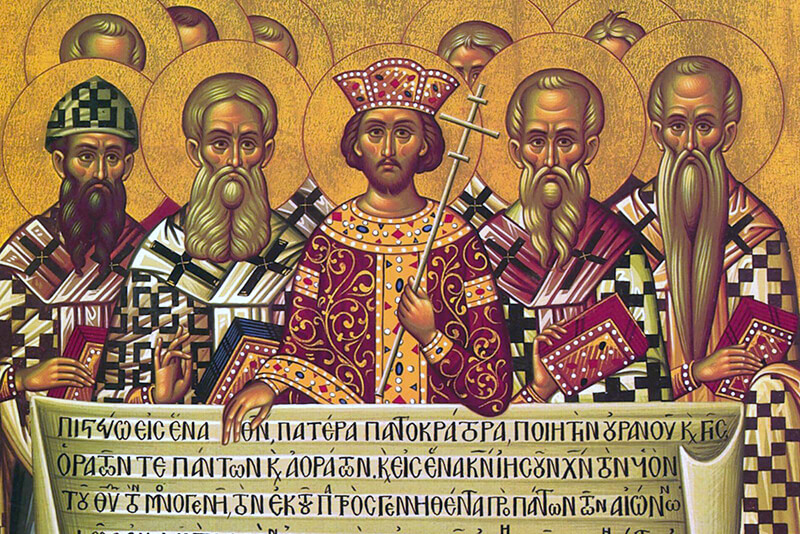

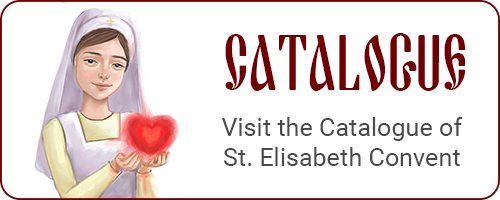
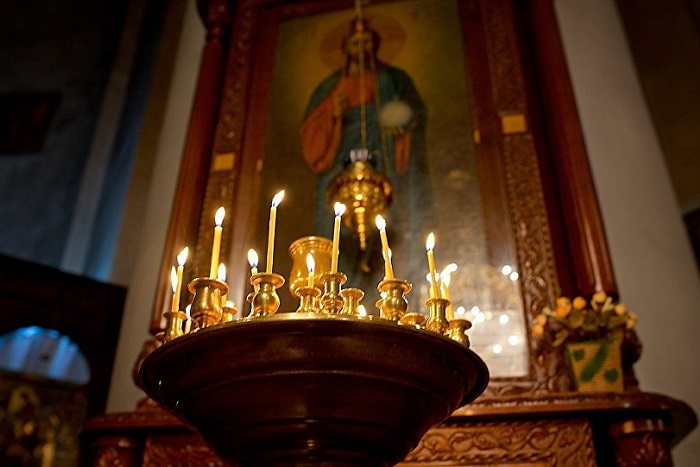
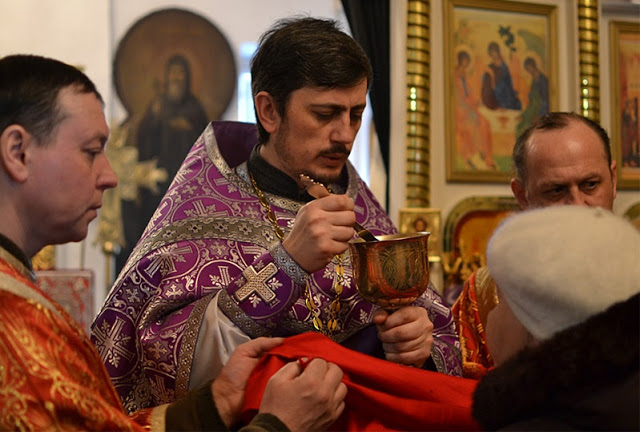

I disagree that condemnation of Sophiology was mistaken; ROCOR confessed traditional Orthodoxy instead of caving in to WCC ecumenist syncretism like other jurisdictions did to some degree. Honestly, the safest thing is to be leery of any “new” Orthodox theology; there are only three saints in the entire history of our Church with the title of “Theologian”. And Solovyev’s take on Sophiology was outright Gnosticism aided by demonic visions he had, not Orthodox at all.
p.s. I know the main subject of the article is Bulgakov’s “moderate” Sophiological system and not Solovyev’s, but the difference is between something that’s just a needlessly convoluted theology we never needed, and bare headed outright heresy.
I agree wholeheartedly that Sophiology and other similar teachings cannot be called heretical. They fall under the category of theologumena, which, rather than contradicting basic Orthodox dogma, make speculative additions to it in areas where there is ambiguity. But there is yet another area of Orthodox life than has been labeled heretical by many, and which is referred to as ecumenism. The problem here is that there is no specific doctrine or ideology by that name. It simply describes the practical engagement by certain Orthodox Churches or their representatives in dealing with heterodox bodies for a variety of reasons. Although everyone involved undoubtedly wishes that ultimately Our Lord’s prayer that “they all may be one” would be realized, none of the Orthodox participants seek to accomplish this by uncanonical or unscriptural means. And there is no evidence that any of the participants would betray Orthodox principles by their participation — none of them have done so.
See: https://nftu.net/wp-content/uploads/2017/12/20225749_104356546921568_3454451627920982016_n.jpg
Heretic Protestants and Papists are not my “brothers in Christ”. You must join the Orthodox Church to be saved. If ecumenism bore good fruit, it would have resulted in the conversion of the heterodox that it came in contact with. No, it has utterly failed.
Do you really believe that God will not save people outside of the Church even though they confess Christ? The thief on the cross was not baptized in the name of the Trinity nor did he take Holy Communion.
https://www.orthodoxwitness.org/the-ultimate-goal-of-ecumenists-is-to-mix-up-the-faithful/
I want to first start by thanking the author who wrote the following article titled, “Where Does Orthodoxy End and Heresy Start?”
I am by no means an expert in regards to theological written works however, I do embrace the wonderful teaching of the Orthodox Church in the Russian, Greek, and Romanian languages.
When I read the wonderful and eloquent passage from the treatise “On the Trinity” by St. Hilary of Poitiers, I resonate with the idea of God the Son. Jesus Christ, who suffered and died on the cross to deliver us from the original sin. His crucifixion is truly an unconditional act of love because God the Father has sent his only Son, Jesus Christ to die on the cross. Why one may ask? For us! In order to wash us all of our sins.
The Holy Trinity is one. The Holy Trinity was created before time, God the Father is one with the Son (Jesus Christ) and the Holy Spirit. All have different roles however, they are all one entity. Think of the Holy Cross.
According to Malov (2022), “Jesus Christ suffered blows, hanging, crucifixion, and death: but the suffering which attacked the body of the Lord, without ceasing to be suffering, had not the natural effect of suffering.” One may understand this quote as Jesus Christ being part of the Holy Trinity. He is one with God the Father and has the support of the Holy Spirit. One can argue that God the Son (Jesus Christ) is directly connected with God the Father and the Holy Spirit, in order to endure the immense pain and suffering through the crucifixion. I think the Resurrection on the cross can arguably be the power of both God the Father and the Holy Spirit working simultaneously. I will connect with the Holy Creed.
The Creed: The Symbol of Faith
I believe in one God, the Father Almighty, Maker of Heaven and Earth and of all things visible and invisible.
And in one Lord Jesus Christ, the Son of God, the only-begotten, begotten of the Father before all ages. Light of light; true God of true God; begotten, not made; of one essence with the Father, by Whom all things were made; Who for us men and for our salvation came down from Heaven, and was incarnate of the Holy Spirit and the Virgin Mary, and became man. And He was crucified for us under Pontius Pilate, and suffered, and was buried. And the third day He arose again, according to the Scriptures, and ascended into Heaven, and sits at the right hand of the Father; and He shall come again with glory to judge the living and the dead; Whose Kingdom shall have no end.
And in the Holy Spirit, the Lord, the Giver of Life, Who proceeds from the Father; Who with the Father and the Son together is worshipped and glorified; Who spoke by the prophets.
In one Holy, and Apostolic Church. I acknowledge one baptism for the remission of sins. I look for the resurrection of the dead and the life of the world to come. Amen.
I mostly reside with the words of Jesus Christ when he was nailed on the Cross “Father, forgive them, for they do not know what they are doing.” Here, God the Son, Jesus Christ is asking God the Father directly to forgive humanity for their sin. These words are truly moving and hold a transcending dimension.
As St. Hilary mentioned, “Christ’s pain and suffering in the same way as one appreciates the intensity of hunger, thirst, or disappointment. Christ experienced all of the above, but not under all circumstances, as He was nourished by divine powers.” I think this quote is true, since God the Son, Jesus Christ is the only-begotten, begotten of the Father before all ages. Light of light; true God of true God; begotten, not made; of one essence with the Father, by Whom all things were made; Who for us men and for our salvation came down from Heaven, and was incarnate of the Holy Spirit and the Virgin Mary, and became man.
Thank you and God Bless, Paula